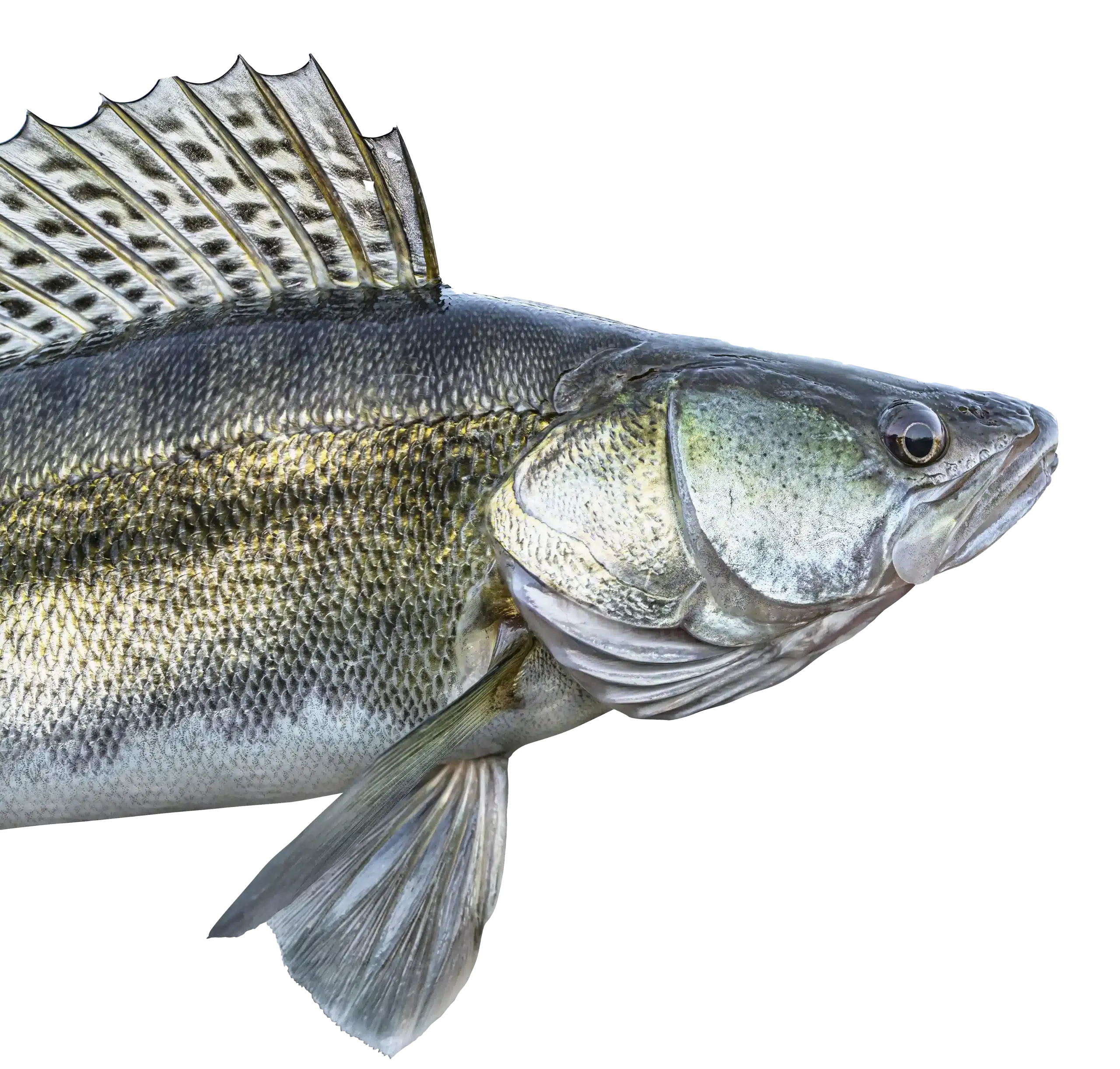
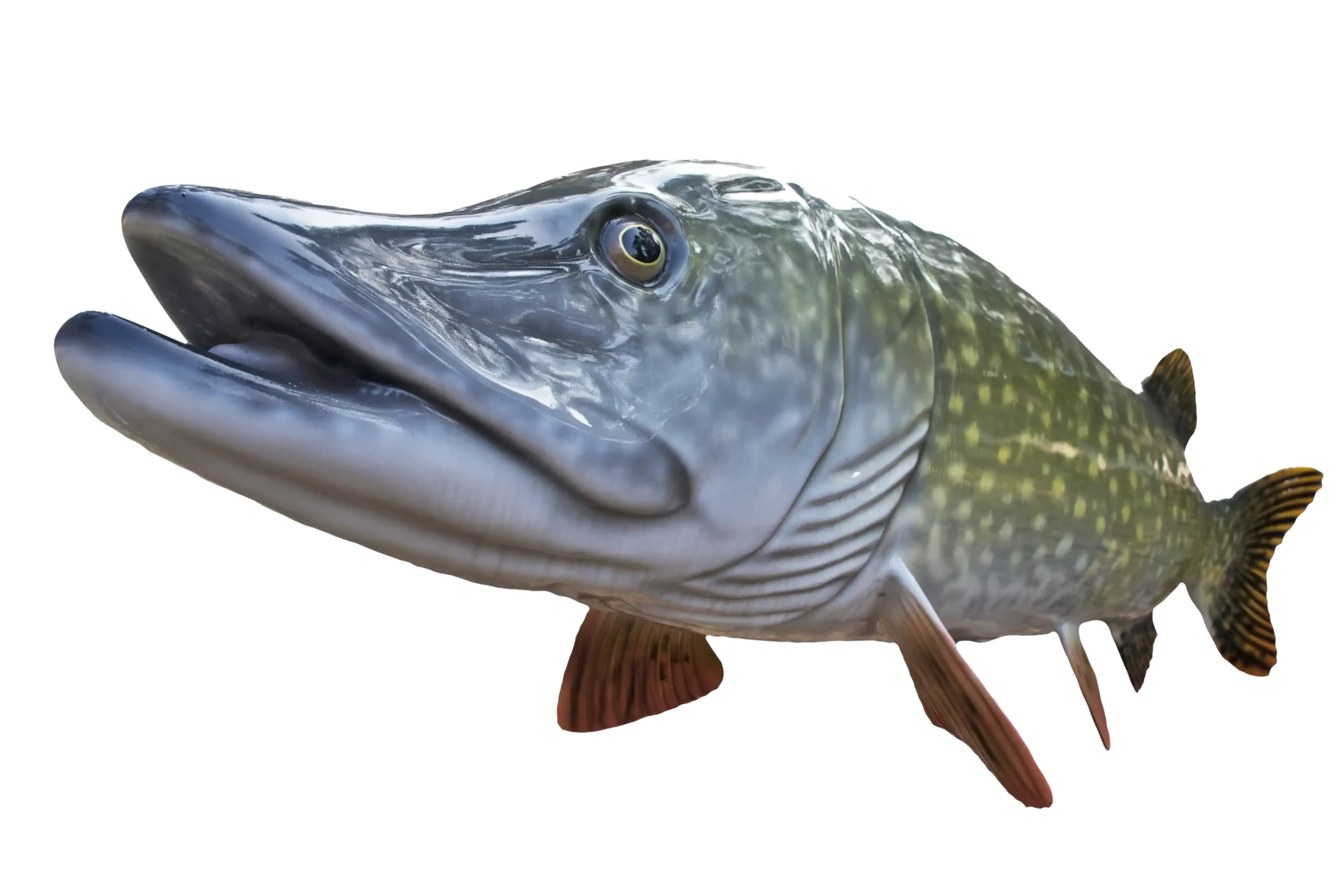
MTT. Minnesota Tournament Trail
NWT. National Walleye Tour
AIM. Angler’s Insight Marketing
Chili Bowl, Border View Lodge
Arnesen’s, Summer Tournament
River Bend Resort, Ladies tournament
Zippel Bay Resort, Northern Pike Tournament
AND MORE!
Jigs or spinners? For many, a classic jig and a minnow is the go to walleye presentation on Lake of the Woods. It could be argued that the jig and minnow has caught more walleyes out of the big lake than any other presentation. It still is the go to and super effective. However, there can be some very good arguments made in learning the nuances of pulling spinners for walleyes, also called crawler harnesses or simply snelled spinners with a crawler, minnow or leech can have big advantages. One of those arguments is, at times, you will simply catch more fish.
Spinners for walleyes really kicks into gear as the water begins to warm up. Normally when water starts to hit the mid 50’s, it is time to start considering drifting or trolling with spinners. Currently on Lake of the Woods, the water temps have reached 60 degrees in many parts of the lake.
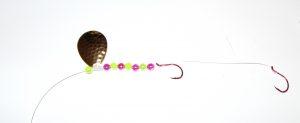
First off, a crawler harness and snelled spinner are basically the same thing. When you are not using a night crawler, we don’t call is a crawler harness anymore, thus it’s a snelled spinner. Semantics out of the way, these set ups are effective.
Why are spinners for walleyes so effective? A lot of reasons, the flash of the blade. The different color combinations of the beads and blades. The vibration of the spinner is sensed by the walleyes lateral line much like that of the prey they feed. You can put crawlers, minnows, leeches and plastics on a harness.
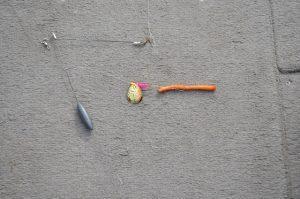
What that looks like is drifting or trolling your set up with a desirable 45 degree angle. When I am trolling in my boat, my goal is 1.25 mph. You don’t want the harness way behind the boat like when you are trolling with a crankbait. You want that 45 degree angle and have total control.
Keep the sinker just off the bottom, not dragging the bottom, but rather touch the bottom once in a while to know you are down there and lift just off so you avoid snags and other debris.
When a walleye grabs it, it loads up like a wet sock. Normally they don’t hammer it. Simply lower you rod tip back at the same speed of the boat so the walleye doesn’t feel anything change for two seconds and swing the rod with a mild hookset. 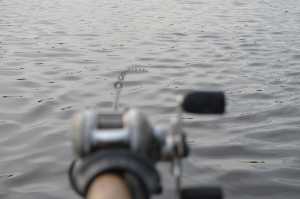
When using a crawler, I suggest a two hook harness and pinch off the crawler once hooked on the harness so only about 3-4″ of tail hangs off of the back hook. This amount of crawler is perfect for great action but will produce many more hookups vs using an entire crawler where the walleye hits it half way back and misses the hooks.
This set up covers water. It can be used from shallow to deep. It will catch everything that swims. And for the folks who go fishing with you less experienced, is a relatively easy way to get walleyes hooked up.
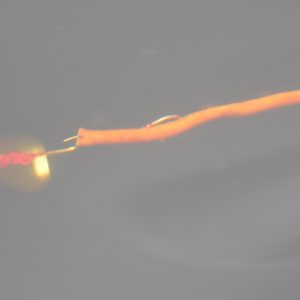


Lake of the Woods
We firmly believe that the internet should be available and accessible to anyone, and are committed to providing a website that is accessible to the widest possible audience, regardless of circumstance and ability.
To fulfill this, we aim to adhere as strictly as possible to the World Wide Web Consortium’s (W3C) Web Content Accessibility Guidelines 2.1 (WCAG 2.1) at the AA level. These guidelines explain how to make web content accessible to people with a wide array of disabilities. Complying with those guidelines helps us ensure that the website is accessible to all people: blind people, people with motor impairments, visual impairment, cognitive disabilities, and more.
This website utilizes various technologies that are meant to make it as accessible as possible at all times. We utilize an accessibility interface that allows persons with specific disabilities to adjust the website’s UI (user interface) and design it to their personal needs.
Additionally, the website utilizes an AI-based application that runs in the background and optimizes its accessibility level constantly. This application remediates the website’s HTML, adapts Its functionality and behavior for screen-readers used by the blind users, and for keyboard functions used by individuals with motor impairments.
If you’ve found a malfunction or have ideas for improvement, we’ll be happy to hear from you. You can reach out to the website’s operators by using the following email
Our website implements the ARIA attributes (Accessible Rich Internet Applications) technique, alongside various different behavioral changes, to ensure blind users visiting with screen-readers are able to read, comprehend, and enjoy the website’s functions. As soon as a user with a screen-reader enters your site, they immediately receive a prompt to enter the Screen-Reader Profile so they can browse and operate your site effectively. Here’s how our website covers some of the most important screen-reader requirements, alongside console screenshots of code examples:
Screen-reader optimization: we run a background process that learns the website’s components from top to bottom, to ensure ongoing compliance even when updating the website. In this process, we provide screen-readers with meaningful data using the ARIA set of attributes. For example, we provide accurate form labels; descriptions for actionable icons (social media icons, search icons, cart icons, etc.); validation guidance for form inputs; element roles such as buttons, menus, modal dialogues (popups), and others. Additionally, the background process scans all the website’s images and provides an accurate and meaningful image-object-recognition-based description as an ALT (alternate text) tag for images that are not described. It will also extract texts that are embedded within the image, using an OCR (optical character recognition) technology. To turn on screen-reader adjustments at any time, users need only to press the Alt+1 keyboard combination. Screen-reader users also get automatic announcements to turn the Screen-reader mode on as soon as they enter the website.
These adjustments are compatible with all popular screen readers, including JAWS and NVDA.
Keyboard navigation optimization: The background process also adjusts the website’s HTML, and adds various behaviors using JavaScript code to make the website operable by the keyboard. This includes the ability to navigate the website using the Tab and Shift+Tab keys, operate dropdowns with the arrow keys, close them with Esc, trigger buttons and links using the Enter key, navigate between radio and checkbox elements using the arrow keys, and fill them in with the Spacebar or Enter key.Additionally, keyboard users will find quick-navigation and content-skip menus, available at any time by clicking Alt+1, or as the first elements of the site while navigating with the keyboard. The background process also handles triggered popups by moving the keyboard focus towards them as soon as they appear, and not allow the focus drift outside it.
Users can also use shortcuts such as “M” (menus), “H” (headings), “F” (forms), “B” (buttons), and “G” (graphics) to jump to specific elements.
We aim to support the widest array of browsers and assistive technologies as possible, so our users can choose the best fitting tools for them, with as few limitations as possible. Therefore, we have worked very hard to be able to support all major systems that comprise over 95% of the user market share including Google Chrome, Mozilla Firefox, Apple Safari, Opera and Microsoft Edge, JAWS and NVDA (screen readers).
Despite our very best efforts to allow anybody to adjust the website to their needs. There may still be pages or sections that are not fully accessible, are in the process of becoming accessible, or are lacking an adequate technological solution to make them accessible. Still, we are continually improving our accessibility, adding, updating and improving its options and features, and developing and adopting new technologies. All this is meant to reach the optimal level of accessibility, following technological advancements. For any assistance, please reach out to